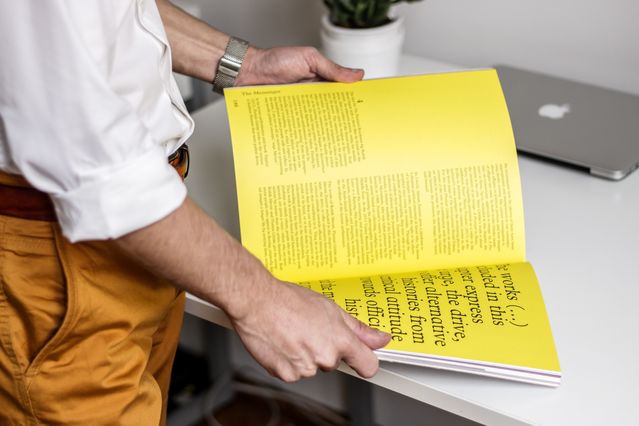Productivity
The Power of the Micro-Break
How five minute rest periods can supercharge your productivity.
Posted December 2, 2019 Reviewed by Lybi Ma
A deadline is looming, the cursor on the screen is winking at you, and suddenly you have a burning desire to google all kinds of interesting but ultimately useless information. One search leads to another and before you know it, you can’t remember what you first started looking for or how you ended up where you are. But you now know all the words to the song that’s been running through your head, the low-down on all the latest celebrity gossip, and how likely you are to survive a zombie attack.
Does any of this sound familiar?
We’ve all sat down before to complete a project where we think all the productivity stars are aligned and everything will go smoothly. We’ve planned the task, we’ve scheduled it, and we’re poised like a coiled spring. But when the time comes, it’s like turning the key on your car to discover that the battery is dead. There’s nothing. Zilch. Nada. You read the words on the screen but nothing is going in and even less is coming out.
As a productivity coach, I have counseled hundreds of clients who have struggled with just such productivity blanks.
The thing is, when you get to this stage it’s too late to try to simply push past it. You cannot manufacture enthusiasm and ideas from nowhere, so your only option is to shut down the laptop and hope that inspiration will strike later.

Your body was likely giving you several signs up to this point to warn you to slow down. Did you miss them? It is important that we attune ourselves to our body’s natural signals so that we can take pre-emptive steps to avoid a loss of focus. I always encourage my clients to be mindful of any or all of the following signs:
- You become forgetful: Although persistent forgetfulness can be a sign of several medical conditions (please consult your physician if you are concerned) it is often a sign that your mind is getting overwhelmed. If this is familiar to you then you know that if it’s in your diary, you remember and can act on it. But if you forget to put something in your diary it means it never existed and isn’t happening.
- You struggle to concentrate on a single piece of work: You either find yourself reading the same line over and over again, or you keep stopping or moving from tab to tab. As a result, you never quite finish what you started.
- You can’t take any more information in: You feel like your head is physically full like you really can’t take any more in. You’re suffering from information overload and you might find yourself using the expression “I’ve had it up to here!” By now your stress levels are rising and you are finding it difficult to relax, even when off duty.
- You become easily distracted: You might go from task to task being distracted by one thing, but not quite finishing it. Or you might find yourself easily distracted by social media or your phone and find it difficult to pick up again where you left off.
- Everything takes longer than you think: Despite planning your work out carefully and being prepared, the fact that you can’t concentrate properly and get easily distracted means that your tasks take far longer to complete than you expected.
You don’t have to be experiencing all of these symptoms before you take action. But if you are concerned that these issues are impacting your desired level of productivity, then it is time to take action.
So, what do you do when that situation arises? Whether you’re facing the blinking cursor in frustration or trying to pre-empt your productivity slump, the solution is the same. Rest.

Yes, rest.
While the idea of taking a break is neither novel nor revolutionary, it remains a key element in maintaining health and well-being, and one that is often overlooked. In our quest for ever-increasing levels of personal productivity, the pressure to push ourselves to work longer and harder becomes difficult to resist. And our health, well-being, and productivity end up suffering as a result.
Studies have shown that even a one-minute micro-break can help restore focus and concentration1. So next time you are struggling to produce the goods, instead of pushing through it, consider walking away from it instead. Give yourself some time out. Just five sets of 15 guilt-free minutes to do as you please will help refresh your mind and give you vital space to problem solve.
Try changing things up a little. Rather than going back to the exact same spot, why not work somewhere different, put on some music or even try another task. All these tactics have been proven to restore energy. The important thing is not to ignore the signs. Sometimes you have to take a step back to make a leap forward.
References
Bennett, A.A. (2015). Take Five Examining the Impact of Microbreak duration, activities and appraisals on human and energy performance. Virginia Commonwealth University
Kiesel, A., Steinhauser, M., Wendt, M., Falkenstein, M., Jost, K., Philipp, A. M., & Koch, I. (2010). Control and interference in task switching - A review. Psychological Bulletin, 136, 849–874.
Lin, B. C., & Fritz, C. (2014). Give me a break! The effects of lunch break unwinding on employee well-being.


